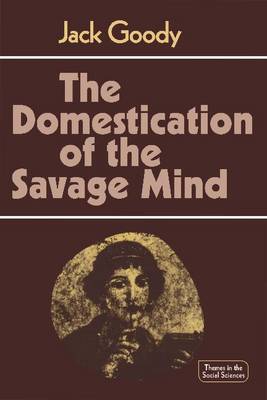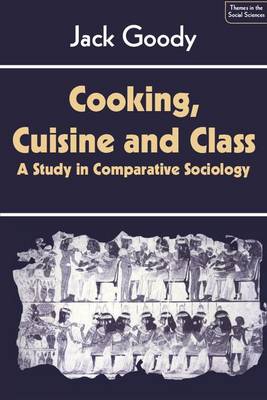Themes in the Social Sciences
2 total works
Current theories and views on the differences in the 'mind' of human societies depend very much on a dichotomy between 'advanced' and 'primitive', or between 'open' and 'closed', or between 'domesticated' and 'savage', that is to say, between one of a whole variety of 'we-they' distinctions. Professor Goody argues that such an approach prevents any serious discussion of the mechanisms leading to long-term changes in the cognitive processes of human cultures or any adequate explanation of the changes in 'traditional' societies that are taking place in the world around us. In this book he attempts to provide the framework for a more satisfactory explanation by relating certain broad differences in 'mentalities' to the changes in the means of communication, and specifically to the series of shifts involved in the development of writing. The argument is based upon theoretical considerations, as well as empirical evidence derived from recent fieldwork in West Africa and the study of a wide range of source material on the ancient societies of the Near East.
The preparation, serving and eating of food are common features of all human societies, and have been the focus of study for numerous anthropologists - from Sir James Frazer onwards - from a variety of theoretical and empirical perspectives. It is in the context of this previous anthropological work that Jack Goody sets his own observations on cooking in West Africa. He criticises those approaches which overlook the comparative historical dimension of culinary, and other, cultural differences that emerge in class societies, both of which elements he particularly emphasises in this book. The central question that Professor Goody addresses here is why a differentiated 'haute cuisine' has not emerged in Africa, as it has in other parts of the world. His account of cooking in West Africa is followed by a survey of the culinary practices of the major Eurasian societies throughout history - ranging from Ancient Egypt, Imperial Rome and medieval China to early modern Europe - in which he relates the differences in food preparation and consumption emerging in these societies to differences in their socio-economic structures, specifically in modes of production and communication. He concludes with an examination of the world-wide rise of 'industrial food' and its impact on Third World societies, showing that the ability of the latter to resist cultural domination in food, as in other things, is related to the nature of their pre-existing socio-economic structures. The arguments presented here will interest all social scientists and historians concerned with cultural history and social theory.

